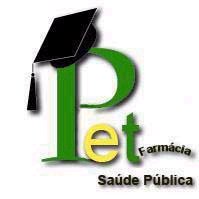Active ingredients produced by plant cell cultures in lab
The advantages of deriving active ingredients for cosmetics products from plant cell cultures were discussed at this year's congress, 'Plants for Human Health in the Post Genomic Era', held in Helsinki.The conference, organised by the Phytochemical Society of Europe, saw nearly 200 scientists present their research on emerging technologies, and the possibilities of using plants as production hosts for proteins and small molecules valuable for human health.Dr Cornelia Schürch from Mibelle AG Cosmetics, a Switzerland-based manufacturer of cosmetics products, discussed the possibilities for the large-scale production of plant cells for cosmetic applications."Plant cell culture is not yet common in the cosmetic field, but it may help to overcome essential problems in the manufacturing of cosmetic products" said Schürch.She went on to explain the approach taken by Mibelle AG Cosmetics in collaboration with the University of Wädenswil, a project that they have expanded from laboratory to production scale.Schürch described the use of a high pressure homogenisation technique that decomposes the plant cells and releases the beneficial constituents, which are encapsulated at the same time in liquid nanoparticles.Plant cell culture describes the growth of plant cells under laboratory conditions in isolation, outside of the intact plant, with the advantage that the products produced are of a high quality and a guaranteed standard.A further advantage of plant cell cultures over plant raw material is that the manufacturer is not restricted by seasonal harvesting; a factor becoming increasingly significant as companies look towards finding naturally sourced actives.Furthermore, only a very small amount of original plant cell material is necessary to grow the cells in culture, therefore concerns for the over harvesting of endangered species are addressed.This second point is particularly pertinent as an increasing number of companies are turning towards exotic sources for their active ingredients, such as plants from the Amazon or Africa, leading to concerns over the environmental sustainability of such practices.In addition, cells cultured in the laboratory can be manipulated to produce more of the desired compound by putting the cells under stress, subjecting them to UV radiation, or various toxic substances.Furthermore, manufacturers can select the most productive cell lines and ultimately modify the cell's genetic characteristics, in order to up production.
Fonte: http://www.cosmeticsdesign.com/ - Segunda-feira, 17 de setembro de 2007.

Nenhum comentário:
Postar um comentário